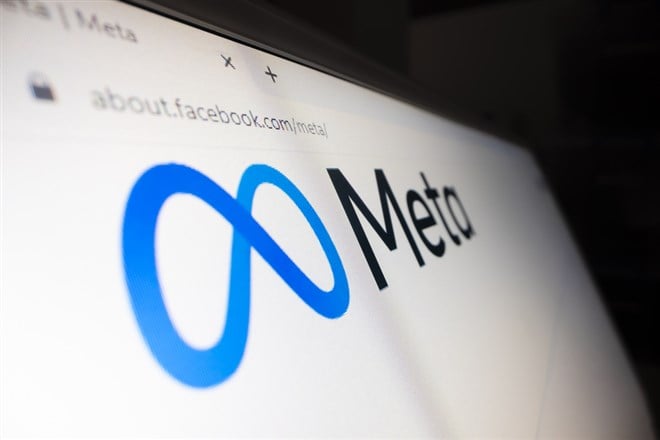
It's projected to be a rough year for Meta Platforms (NASDAQ: META) this year, according to analysts.
For one, the company's earnings are poised to shrink 10.14 percent. This means its earnings per share (EPS) will go down to $8.06 from $8.97 per share.
However, despite this reduction in earnings, the consensus on Wall Street is that it's still a moderate buy. Thirty-two analysts gave the stock a buy rating, while 14 gave it a hold recommendation.
With the company's depressed stock price, this gives it a potential upside of 40.5%, and there are some indications that the stock could fall to even lower levels.
Tech Stocks may Struggle in 2023
After the euphoria of the COVID-induced rally for tech stocks ended near the tail end of 2021, which saw companies see their valuations nosedive, the NASDAQ has been in a relative free fall.
The NASDAQ 100 lost 33 percent of its value in 2022. This came amid the Federal Reserve's rising interest rates, which is pivotal to understanding where stocks like Meta may be headed for the rest of this year.
Rising interest rates affect all stocks differently, but for tech companies (most of which are not yet profitable), this adversely affects their long-term profit projections significantly. Interest rates are a major component of forecasting a company's intrinsic value. All else being equal, when interest rates rise, a company's predicted valuation falls, and this effect often hits speculative tech stocks the hardest.
Although Meta reported $4.39 billion in net income last quarter, investors may paint the company with the same brush as being too much of a gamble in the current environment. This feeling of unease could be supported by the guidance the company issued last quarter.
Meta Expects Turbulence
Meta has seemingly gone the route of Amazon.com's (NASDAQ: AMZN) strategy of reinventing itself at the literal expense of short-term earnings. If the company's pivot to the metaverse is successful, it may stand as one of the most impressive pivots investors have seen from a tech company over the next couple of decades.
The seeming lack of concern for short-term earnings was reflected in its results last quarter. No guidance was posted for its net income, but the company stated that it expects its total revenue to increase to $30-32.5 billion in Q4.
The company also expects its total expenses to fall by $96-$101 billion by the end of this year, which will further pressure its bottom line. Some of that growth in its expenses will come from its Reality Labs acquisition, a needed piece of the puzzle to reach its metaverse ambitions through the development of virtual reality headsets. Underlining this is that Meta expects expenses for Reality Labs to increase "significantly year-over-year."
Accelerating New Competitive Threats
The astonishing progress in the development of neural networks such as GPT-3 and the incoming GPT-4 are likely to be game changers in the online ad industry, according to The Times.
Chat GPT and large language models (LLMs), have the potential to challenge Alphabet's (NASDAQ: GOOG) online search business by directing users directly to their destinations instead of showing pages of ads and links.
While Meta must now contend with Apple's (NASDAQ: APPL) renewed commitment to user privacy. Apple has made it harder for advertisers to track users across the web, thus making some popular online marketing campaigns, such as re-targeting, far more difficult.
Then there's Apple's and Amazon's continued foray into the online marketing space, along with the growth of Meta's rival TikTok.
The bottom line is that Meta's US digital advertising market share is set to contract significantly this year, from 23.6% to 18.4%, according to eMarketer.
The company's focus on realizing the metaverse while the online marketing space becomes increasingly more complex and crowded could mean its losses will deepen faster than anticipated. We're yet to see encouraging signs that such a gamble will indeed pay off in reality.





